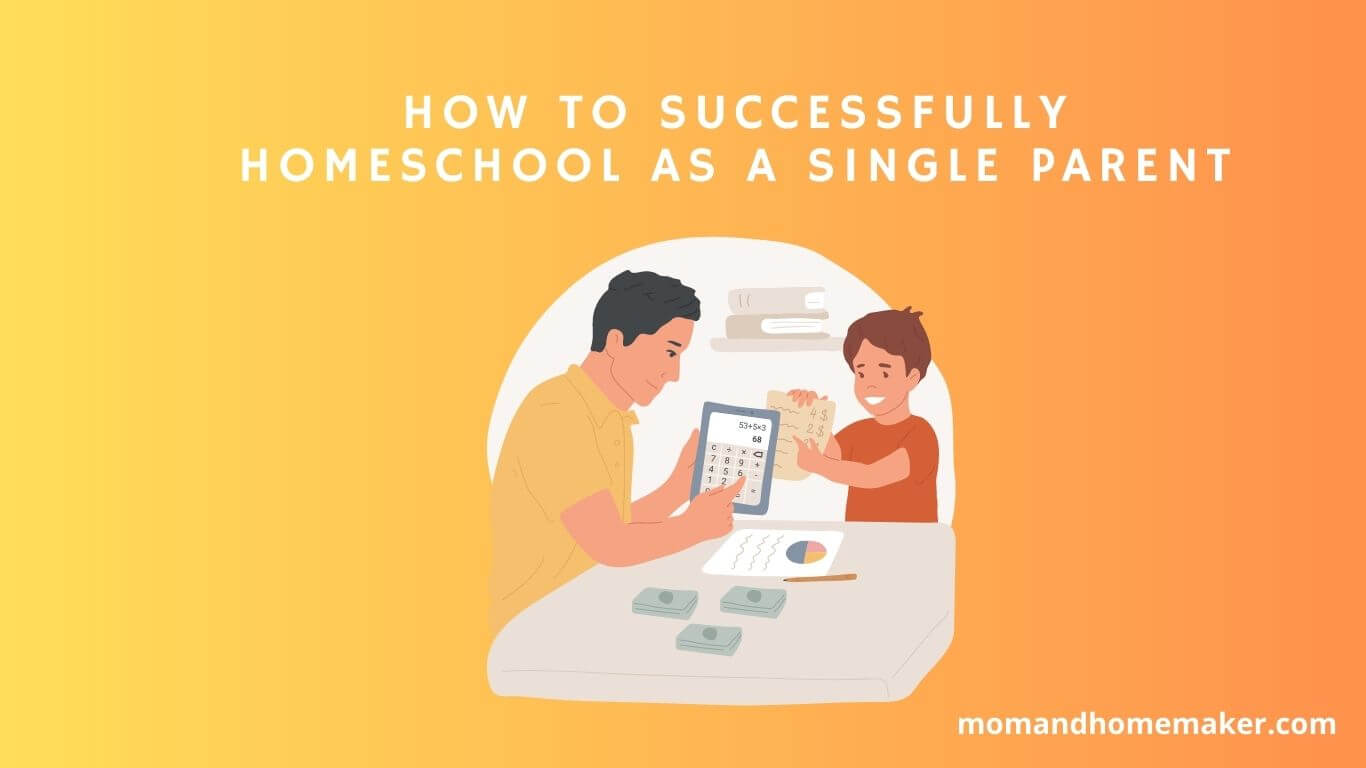If you’re a parent of a child with speech delays, you know that the process of educating your child can come with its unique set of challenges. Although it can be tough, homeschooling can be a great way to provide a flexible and tailored learning experience for your child.
In this blog post, we’ll go over some helpful tips and strategies for successfully homeschooling your child with speech delays. With patience, persistence, and the right resources, you can help your child achieve academic success and overcome language barriers.
Table of Contents
1. What to Do if Your Child Has a Speech Delay
If a child is struggling with speech delay, it is important for parents to take action and provide appropriate support for their child’s learning needs. There are various options available to parents, including homeschooling, private or public school, working with an educational consultant, or therapy with a private practitioner, public school, or online services.
Homeschooling has become a popular option, as parents can ensure a personalized curriculum and provide more one-on-one attention for their children. Strategies for supporting children with speech delays may involve teaching sign language, speaking clearly on their level, and incorporating activities and subjects they excel at to keep motivation high.
Evaluating learning progress, choosing the right therapy option, and scheduling lessons are also crucial factors in a child’s learning journey. It is important to seek support and resources within the community, reject quack therapies, and include literacy and numeracy skills in the homeschooling curriculum. Every parent should be an avid student of their child, especially if they have a disability disorder or developmental delay, in order to be their advocate and teacher for the best interest of their child.
2. Why Homeschooling Can Be a Good Option for Children with Speech Delays
Homeschooling can be a great option for children with speech delays. Parents who choose to homeschool often do so because they want to be more involved in their child’s education and development. This is particularly important for children with speech delays, as strong foundational communication skills are vital for academic, social, and emotional success.
Homeschooling allows parents to work with their children to improve their speech and language skills on a more personalized level. Homeschooling may also be a good option for children with speech delays because it removes some of the potential challenges that can come with traditional schooling, such as bullying or feeling left behind academically.
It also allows for more individualized attention and flexibility in scheduling therapy sessions or other interventions. However, homeschooling may not be the best fit for every family or child, and it is important for parents to weigh their options and gather information before making a decision.
3. Strategies for Supporting Children with Speech Delays
Parents with children who have speech delays may feel overwhelmed and unsure of how to help their children. However, there are many strategies available to support children with speech delays. One of the most important strategies is for parents to stay calm and provide ample opportunities for their children to catch up with their peers.
Consistent language input from parents and the world around them is essential for their growth. Another helpful strategy is to invest extra time in teaching literacy and numeracy skills through self-teaching. This can be done through phonics or reading games at a pace that is comfortable for the child. Parents should also keep track of their child’s progress to see where they need more help.
It is also important to consider if the parent wants to teach the lessons themselves or if they need the help of an experienced instructor. Overall, with these supportive strategies, children with speech delays can become successful learners and communicators.
4. Literacy and Numeracy Skills: Self-Teaching vs. Hiring a Tutor
There are several teaching literacy and numeracy skills options to consider for children with speech delays. One option is self-teaching, which involves the parent or caregiver taking on the role of teacher. This can be a viable option if the parent feels confident in their ability to teach the necessary skills, but it may not be the best fit for everyone.
Hiring a tutor can provide additional support and expertise. A tutor may have specialized training in working with children with speech delays and can provide one-on-one attention to help the child make progress faster. However, it’s important to consider the cost of hiring a tutor, as it can add up quickly.
Ultimately, the decision to self-teach or hire a tutor will depend on the individual needs of the child and the resources available to the family. It’s important to evaluate each option carefully and choose the best fit for both the child and the family.
5. Causes of Speech Delays
Speech delays are a common issue among children and can be caused by various factors. According to research, these are the main causes of speech delays. The first cause is oral-motor problems, which occur when there is a problem in the brain areas responsible for speech muscles’ control. As a result, children may have difficulty producing sounds, which can lead to speech delays.
The second cause is autism, which frequently affects children’s speech development and communication skills. Another cause is hearing problems or auditory processing disorder, which can significantly impact a child’s ability to understand and use language.
Apart from Autism, the other cause is intellectual disability, which affects various developmental areas, including speech and language. Lastly, some children may have a speech delay for no known reason, which is referred to as idiopathic speech delay.
It is essential to seek help and early intervention if a child experiences speech delay to address the underlying issue and support their development.
6. Materials: Books, Workbooks, and Other Resources
When homeschooling a child with speech delays, materials like books, workbooks, and other resources can be helpful tools for their learning. Many homeschool curriculum providers offer materials specifically designed for children with speech delays, such as books with clear and simple language and workbooks with exercises to improve speech and language skills.
Online resources like videos and podcasts can provide engaging and interactive content for children to learn from. It’s important to choose materials that are appropriate for your child’s age and skill level and to incorporate them into a structured and consistent homeschooling schedule. Materials can also be supplemented with hands-on learning activities and field trips to provide a well-rounded educational experience.
When choosing materials, it’s important to consider your child’s individual learning style, interests, and needs. As always, it’s important to regularly evaluate progress to ensure the materials and resources being used are effective and beneficial for your child’s learning and development.
7. Scheduling Homeschooling Lessons for Children with Speech Delays
It is important to consider individual needs and abilities when scheduling homeschooling lessons for children with speech delays. It may be helpful to establish a consistent routine to provide structure and predictability for the child. Breaking up lessons into smaller sessions throughout the day may also be helpful for children who may have difficulty staying focused for extended periods of time.
It is important to create a positive learning environment, free of distractions and with ample opportunities for the child to practice their language skills. Parents may want to incorporate activities that the child enjoys and can motivate them to learn, such as reading books or playing educational games. Monitoring progress is also important, and parents can keep track of improvement in specific areas and adjust their approach accordingly.
At the same time, parents should be patient and understanding, recognizing that progress may not always be immediate or linear. Keeping a positive attitude and celebrating small victories can go a long way in supporting a child’s language development.
8. Alternative Options: Private or Public School, or Working with an Educational Consultant
Parents of children with speech delays have several alternative options when it comes to education. They can consider sending their child to a private school for kids with special needs, homeschooling through a local public school district, or hiring an educational consultant who specializes in working with children who have delayed speech development.
Private schools for special needs children provide services tailored to the specific needs of the child but come with a high cost. Homeschooling through a local public school district lets parents use the district curriculum but may take more time because they will teach multiple subjects as well as any special education courses.
On the other hand, hiring an educational consultant can assess the child’s abilities and determine the best course of action. Parents must weigh the pros and cons of each option carefully before making a decision. It’s important to choose an option that will provide the child with the best opportunity to develop their speech and language abilities in a supportive and comfortable environment.
9. Therapy Options: Private Practitioner, Public School, or Online Services
When seeking speech therapy services for a homeschooling child with a speech and language disorder, parents have several options to consider. One option is to enroll the child in a public school special education program, which may offer services tailored to the child’s needs. However, the availability of such programs may vary by state and local school district.
Another option is to attend a private speech therapy clinic or seek out an online speech therapy provider. Online speech therapy has become increasingly popular, particularly during the COVID-19 pandemic, due to its affordability, convenience, and accessibility. When selecting an online provider, parents should look for a licensed and experienced speech-language pathologist who is committed to building a strong relationship with both the child and the parent.
If the child’s communication issues are more minor, parents can also incorporate helpful exercises and techniques into their daily homeschooling routine. It is essential to be proactive and vigilant in noticing any speech difficulties in a child and seeking appropriate therapy services early on to promote their academic, social, and emotional success.
10. Cost Considerations for Therapy Services and Choosing the Right Option for Your Child.
The cost can be a significant consideration for homeschooling parents when it comes to providing speech therapy for a child with speech delays. Luckily, there are several options available that cater to various budgets, so parents can choose the best option for their child’s needs. Choosing a public school, if eligible, can be a cost-effective solution, as the services are covered under special education programs.
However, the Individualized Education Plan (IEP) approval and funding allocation vary across states and school districts. On the other hand, opting for private speech therapy clinics can be an expensive option, but parents can receive hands-on support and individualized attention.
Alternatively, online speech therapy can be a more affordable option that also offers flexibility and convenience for homeschooling families. Parents should look for online providers who prioritize building strong relationships with parents and offer strategies and techniques for continued practice at home.
Ultimately, the cost of speech therapy services should not come at the expense of a child’s development, and with careful consideration, parents can choose the right option that best suits their child’s needs and budget.
11. Teaching and Progress Tracking for Children with Speech Delays
Teaching a child with a speech delay can be challenging, but it is important to stay positive and patient while they learn at their own pace. Self-teaching is a popular option among homeschooling parents, and it is essential to invest extra time in teaching literacy and numeracy skills. Phonics and reading games are good places to start, and progress tracking is crucial to determine areas that need extra help.
Parents can choose to teach themselves or hire professionals for lessons. With homeschooling, parents have the freedom to decide how much time to devote to lessons and how many days per week to plan for schooling. Alternative options include sending the child to a private school for kids with special needs, homeschooling through a local public school district, or hiring an educational consultant to determine the best course of action.
It is vital to evaluate learning progress continually and alter teaching strategies accordingly. Celebrate every milestone, no matter how small, and remember that progress takes time and effort.
12. Evaluating Learning Progress
Evaluating a child’s learning progress is important to ensure they are grasping the concepts being taught. However, in homeschooling, it may look quite different from traditional school assessments. Instead of relying on standardized tests or quizzes, homeschooling parents can evaluate their child’s progress through regular assessments during their lessons.
This can include observing their child’s ability to apply the learned concepts in real-life situations, projects, and discussions. The focus should be on the quality of learning rather than the quantity. It’s important to emphasize mastery over memorization, as kids with speech delays may need more time to process and absorb information.
Parents can also encourage their child to teach a concept back to them or to a younger sibling, which helps to solidify understanding. Parents can have regular conversations with their children, asking open-ended questions about what they learned and how they can apply it.
By being patient, consistent, and creative in their approach to evaluating their child’s learning, homeschooling parents can help their child with speech delays succeed academically and emotionally.
Conclusion
In conclusion, homeschooling a child with a speech delay may seem daunting and challenging at first, but it is not as difficult as it seems. With the right resources, patience, and perseverance, anyone can successfully homeschool their child with speech delays.
Remember to involve your child in activities that will help them improve their communication skills, be consistent in your teaching approach, and celebrate every small progress made by your child. Homeschooling can provide a safe and nurturing environment for children with speech delays to learn and grow at their own pace. So take the leap of faith today and start homeschooling your child with a speech delay – you won’t regret it!










